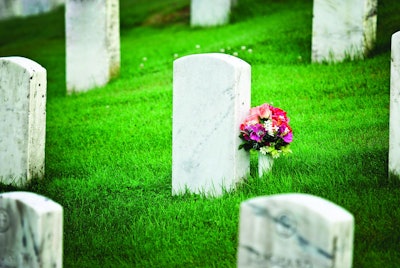 If you observe in your co-worker or spouse any suicide warning sign behaviors, let them know that you care enough about them to suggest that they get help.Photo: Getty Images
If you observe in your co-worker or spouse any suicide warning sign behaviors, let them know that you care enough about them to suggest that they get help.Photo: Getty Images
Families of officers who died by suicide—as well as department colleagues left behind—frequently say the officers displayed visible warning signs of life-threatening mental or emotional crisis that only really registered after the officer's death.
Some of those signs include:
• Displaying feelings of hopelessness
• Withdrawing from friends and family
• Increase in alcohol consumption
• Noticeable change in weight—either gain or loss
• Ending typically beloved recreational activities
• Sudden, unexpected outbursts of anger or sadness
• Increased risk-taking both on and off duty
• A change in attitude or personal demeanor
• Saying things like, "You'll take care of my family if I die, right?"
• Threatening suicide—many suicide victims verbally telegraph their death
Some of these behaviors are far more likely to be observed by an officer's colleagues than his family.
If you observe in your co-worker or spouse any of these behaviors, let them know that you care enough about them to suggest that they get help. They can seek the assistance of a department resource like a mental health counselor or chaplain. They can talk with an outside psychiatrist or psychologist.
Further, there is plenty of literature available to help officers in crisis. Books like "Emotional Survival for Law Enforcement" by Dr. Kevin Gilmartin, "I Love a Cop" by Dr. Ellen Kirshman, and "Armor Your Self" by John Marx can be great resources for officers who may be approaching crisis. Add to that list books like "The Price they Pay" by Karen Solomon and Jeffry McGill—two of the founders of BlueH.E.L.P.
Read Is Officer Suicide on the Rise?
Then, there is the National Suicide Prevention Lifeline (1-800-273-8255), which provides 24/7, free and confidential support for people in distress. Safe Call Now (1-206-459-3020) offers those services specifically for first responders.
Finally, there is BlueH.E.L.P. On its website the organization maintains, a first responder need only enter a few data points—such as their location and what kind of assistance is needed—and the individual will be provided with a list of options for help from a searchable database dedicated to helping first responders find emotional, financial, spiritual, and other forms of assistance.
BlueH.E.L.P. says officers need to know it's OK to NOT be OK. It's OK to ask for help.
Doug Wyllie is web editor for POLICE.


















